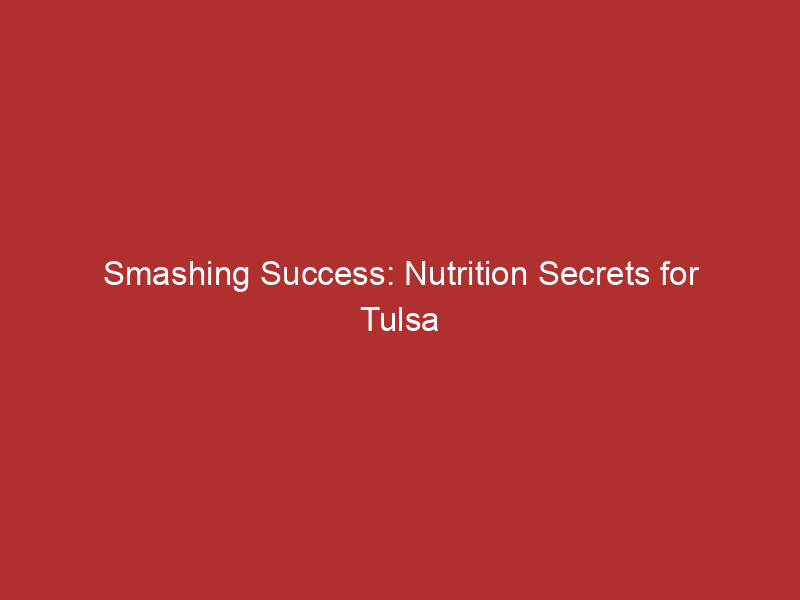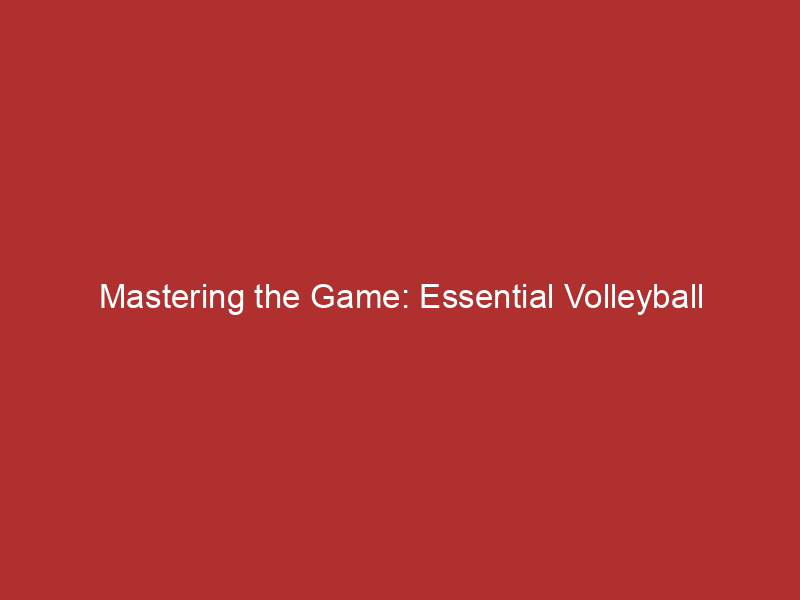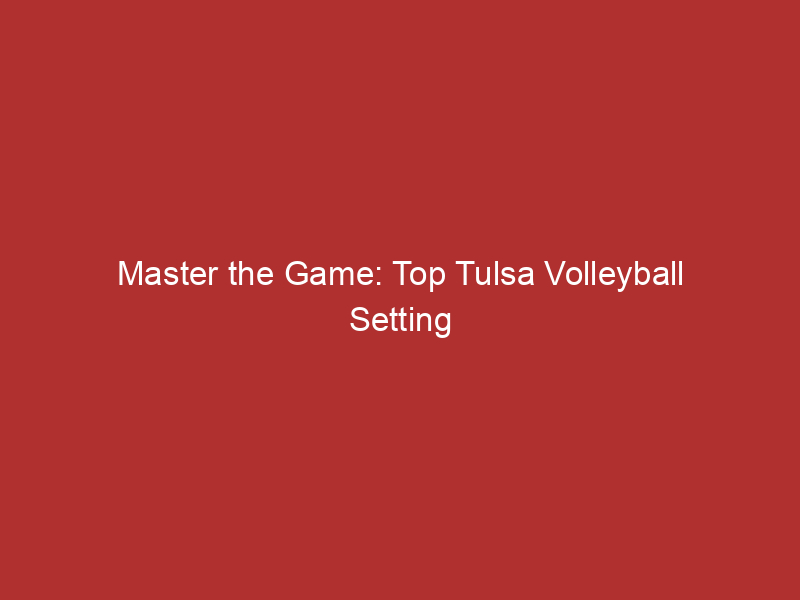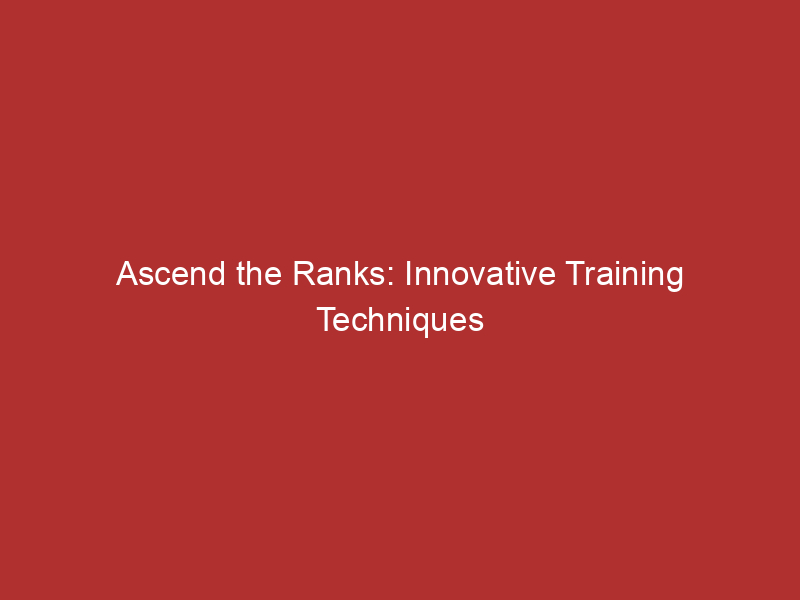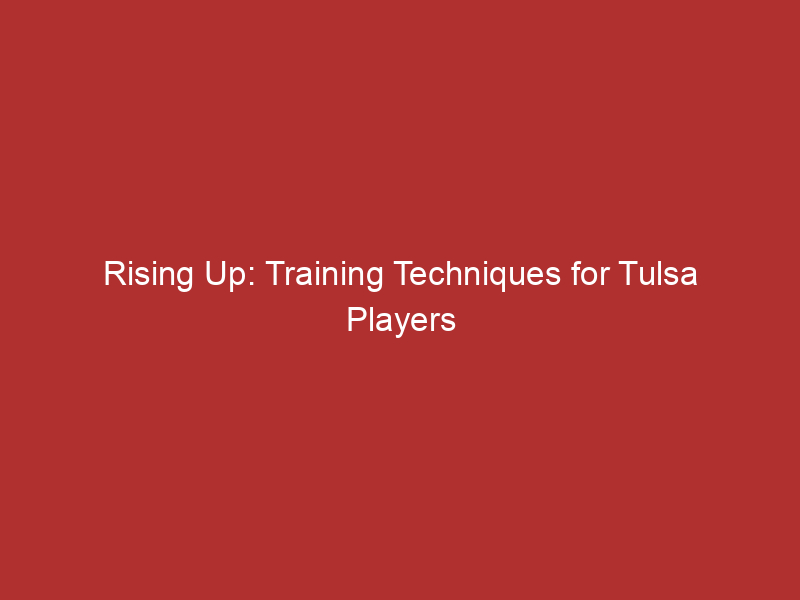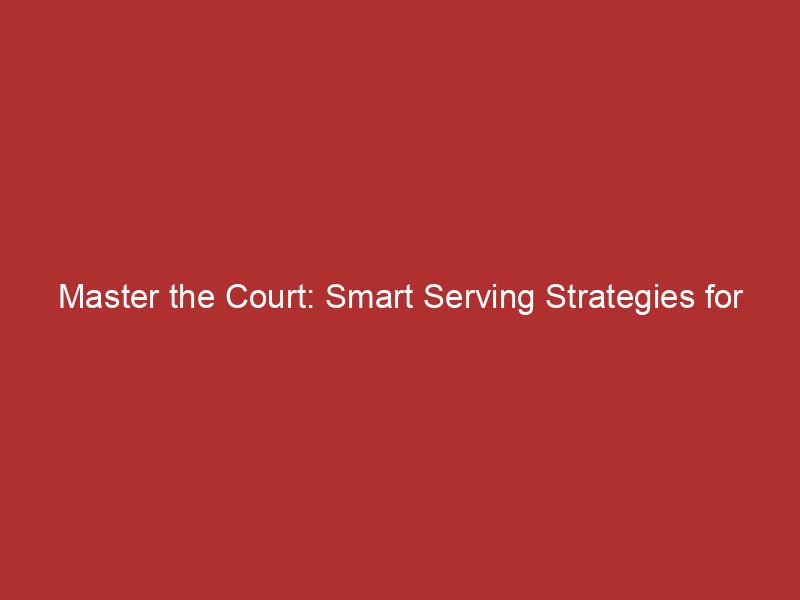Introduction to Tulsa Volleyball Nutrition
When it comes to volleyball, a sport that demands agility, endurance, and strength, nutrition plays a pivotal role. In this guide, we will explore the importance of nutrition in sports, particularly focusing on the specific nutritional needs of volleyball players in Tulsa.
-
- Understanding the importance of nutrition in sports
Nutrition is a fundamental part of any sport. It provides the energy needed to perform, aids in recovery after training or games, and helps prevent injuries. In fact, according to the American College of Sports Medicine, adequate nutrition can enhance athletic performance by as much as 15%. This is particularly true for volleyball players, who need a balanced diet to maintain their energy levels, build muscle strength, and improve their overall performance.
-
- Specific nutritional needs of volleyball players
Volleyball players have unique nutritional needs. They require a diet rich in carbohydrates for energy, protein for muscle repair and growth, and fats for long-lasting energy. Additionally, they need a variety of vitamins and minerals to support their immune system and overall health. For example, calcium and vitamin D are crucial for bone health, while iron is necessary for oxygen transport in the body.
In the following sections, we will delve deeper into the specific diet tips for volleyball players, the role of nutrition in fueling volleyball success, and how to eat healthily for volleyball. We will also share some case studies from Tulsa sports to illustrate the impact of nutrition on performance. So, stay tuned for a comprehensive guide on volleyball nutrition!
Volleyball Diet Tips
For volleyball players, diet plays a crucial role in their performance on the court. A well-planned meal can provide the necessary energy and nutrients needed for optimal performance. Let’s delve into the importance of meal planning and how to create an effective meal plan for a volleyball player.
Meal Planning for Volleyball Players
Meal planning is a vital aspect of a volleyball player’s diet. It ensures that players consume balanced meals, which are essential for their overall health and performance. Let’s explore this in more detail.
-
- Importance of Meal Planning
Meal planning is essential for volleyball players for several reasons. Firstly, it ensures that players get a balanced diet, which is crucial for their physical health and performance. Secondly, it helps in maintaining energy levels throughout the day, which is necessary for intense training sessions and matches. Lastly, meal planning can also aid in weight management, which is important for maintaining agility and speed on the court.
-
- How to Create a Meal Plan for a Volleyball Player
Creating a meal plan for a volleyball player involves several steps. Firstly, it’s important to understand the player’s nutritional needs, which can vary based on their age, gender, and level of physical activity. Secondly, the meal plan should include a variety of foods to ensure that the player gets a wide range of nutrients. This includes lean proteins for muscle repair and growth, complex carbohydrates for sustained energy, and fruits and vegetables for vitamins and minerals. Lastly, the meal plan should be flexible and take into account the player’s preferences and lifestyle to ensure that it’s sustainable in the long run.
A well-planned diet can significantly enhance a volleyball player’s performance. So, take the time to plan your meals and fuel your body with the right nutrients.
Pre-Game Meals
Before stepping onto the volleyball court, it’s crucial to fuel your body with the right nutrients. Let’s explore the best foods to eat before a game and the ideal timing for pre-game meals.
-
- Best Foods to Eat Before a Game
Choosing the right foods before a game can significantly impact your performance. Here are some top choices:
-
-
- Complex Carbohydrates: Foods like whole grain bread, pasta, and fruits provide long-lasting energy. They are digested slowly, ensuring a steady supply of energy throughout the game.
- Lean Proteins: Foods such as chicken, turkey, and fish help repair and build muscles. They also keep you feeling full, so you don’t get hungry during the game.
- Hydrating Foods: Foods high in water content, like cucumbers and watermelon, can help keep you hydrated. This is especially important in a physically demanding sport like volleyball.
- Timing of Pre-Game Meals
-
When you eat is just as important as what you eat. Here’s a simple guideline:
-
- 3-4 Hours Before the Game: Have a meal rich in complex carbohydrates and lean proteins. This gives your body enough time to digest and absorb the nutrients.
- 1-2 Hours Before the Game: Have a light snack, such as a piece of fruit or a handful of nuts, to keep your energy levels up.
- 15-30 Minutes Before the Game: Hydrate with water or a sports drink. Avoid eating at this time to prevent discomfort during the game.
Be mindful, everyone’s body is different. What works for one athlete may not work for another. It’s important to experiment and find what pre-game meals work best for you.
Sports Nutrition: Fuel for Volleyball Success
One of the key components of sports nutrition for volleyball players is hydration. It’s not just about drinking water; it’s about understanding why hydration is crucial and how to hydrate effectively.
Hydration
Hydration plays a significant role in an athlete’s performance, especially in a physically demanding sport like volleyball. Let’s delve into the importance of hydration and the best practices for athletes.
-
- Why hydration is crucial for volleyball players
Hydration is not just about quenching your thirst. For volleyball players, it’s about maintaining optimal body function during intense physical activity. When you’re dehydrated, your body can’t perform at its best. You may experience fatigue, muscle cramps, and even dizziness. According to a study, even a 2% decrease in body water can impair athletic performance.
-
- Best hydration practices for athletes
So, how can you stay hydrated? Here are some best practices:
-
- Drink water throughout the day: Don’t wait until you’re thirsty to drink water. Thirst is a sign that you’re already dehydrated. Make it a habit to drink water regularly throughout the day.
- Hydrate before, during, and after the game: Drink at least 16-20 ounces of water two hours before the game, 7-10 ounces every 10-20 minutes during the game, and 16-24 ounces for every pound lost after the game.
- Use sports drinks wisely: Sports drinks can be beneficial during prolonged, intense exercise as they provide carbohydrates and electrolytes. However, they should not replace water.
The proper hydration is a key part of sports nutrition. It can significantly impact your performance on the volleyball court. So, make hydration a priority in your nutrition plan.
Protein Intake
Protein is a vital nutrient for any athlete, especially for those participating in high-intensity sports like volleyball. It plays a significant role in muscle recovery and growth, and choosing the best protein sources can make a huge difference in performance.
-
- Role of Protein in Muscle Recovery and Growth
Protein is a building block for our muscles. When we exercise, our muscles experience small tears. It’s the process of repairing these tears that leads to muscle growth. Protein provides the necessary amino acids, the building blocks for this repair process. A study by the American College of Sports Medicine shows that athletes who consume protein after intense workouts recover faster and experience less muscle soreness.
-
- Best Protein Sources for Athletes
Not all protein sources are created equal. For athletes, it’s essential to choose high-quality, lean protein sources. Here are some of the best options:
| Protein Source | Protein per 100g |
|---|---|
| Chicken Breast | 31g |
| Lean Beef | 26g |
| Fish (Tuna, Salmon) | 20-22g |
| Eggs | 13g |
| Quinoa | 14g |
It’s not just about quantity but also the quality of protein. These sources are packed with essential amino acids that your body needs for optimal muscle recovery and growth.
Healthy Eating for Volleyball: Tulsa Volleyball Diet
When it comes to volleyball, nutrition plays a significant role in your performance. In this section, we’ll focus on the importance of healthy snacks in a volleyball player’s diet, especially for those in Tulsa.
Healthy Snacks
Healthy snacks are a vital part of an athlete’s diet. They provide the necessary energy and nutrients needed for optimal performance. Let’s delve into why snacking is important for athletes and explore some healthy snack ideas specifically for volleyball players.
-
- Why snacking is important for athletes
Snacking is not just about curbing hunger. For athletes, it’s about fueling their bodies to maintain energy levels, recover from intense training, and promote muscle growth. According to a study, athletes who consume snacks between meals have better energy distribution throughout the day. This leads to improved performance and quicker recovery times.
-
- Healthy snack ideas for volleyball players
Volleyball players need snacks that are rich in protein and carbohydrates to replenish their energy stores and aid muscle recovery. Here are a few ideas:
-
- Fruit and Nut Butter: An apple or banana with a tablespoon of almond or peanut butter provides a good balance of carbohydrates, protein, and healthy fats.
- Yogurt and Berries: A cup of Greek yogurt with a handful of berries is a protein-packed snack that also provides antioxidants.
- Protein Bars: Look for bars with minimal added sugars and at least 10 grams of protein. They’re a convenient on-the-go snack.
- Trail Mix: A mix of nuts, seeds, dried fruit, and dark chocolate can provide a quick energy boost and essential nutrients.
Secret to a successful volleyball diet is balance. Consuming a variety of nutrient-dense foods will help ensure you’re getting all the essential nutrients your body needs to perform at its best.
Supplements
Supplements are like extra helpers that some athletes use to boost their performance and health. But remember, they’re not magic potions! They work best when combined with a balanced diet and regular exercise. Let’s explore some common supplements used by athletes and how to use them safely.
-
- Common supplements used by athletes
There are many types of supplements out there, but here are a few that athletes often use:
| Supplement | Benefits |
|---|---|
| Protein powders | Helps in muscle recovery and growth after intense workouts. |
| Multi-vitamins | Ensures the body gets all the essential vitamins it needs. |
| Omega-3 fatty acids | Supports heart health and reduces inflammation. |
| Creatine | Boosts strength and power during high-intensity workouts. |
-
- How to safely use supplements
Using supplements can be beneficial, but it’s important to do it safely. Here are some tips:
-
- Consult a healthcare professional: Before starting any supplement, it’s best to talk to a doctor or a dietitian. They can help you understand if the supplement is right for you.
- Follow the instructions: Always read and follow the instructions on the supplement package. Taking too much can be harmful.
- Quality matters: Choose supplements from reputable brands. They are more likely to be safe and effective.
- Balance with diet: Remember, supplements are not a replacement for a healthy diet. They should be used to supplement a balanced diet and regular exercise.
Volleyball Performance Nutrition
When it comes to volleyball, nutrition plays a vital role in enhancing performance. One of the key components of an athlete’s diet is carbohydrates. Let’s delve into why carbohydrates are so important and the best sources to get them from.
Carbohydrates
Carbohydrates are the primary fuel source for your body’s energy needs. They are especially crucial for athletes. Here’s why:
-
- Why carbohydrates are important for athletes
Carbohydrates provide the energy that powers athletes through intense training and matches. When you consume carbohydrates, your body breaks them down into glucose, which is used for immediate energy or stored in your muscles and liver for later use. This stored energy, known as glycogen, is what athletes tap into during prolonged physical activity. Without adequate carbohydrates, an athlete’s energy levels can dip, leading to fatigue and reduced performance.
-
- Best carbohydrate sources for athletes
Not all carbohydrates are created equal. Athletes should focus on consuming complex carbohydrates, which provide a slow and steady release of energy. Some of the best sources of complex carbohydrates include:
| Food | Carbohydrate Content |
|---|---|
| Whole grains (e.g., brown rice, oatmeal) | High |
| Fruits (e.g., bananas, oranges) | Moderate to High |
| Vegetables (e.g., sweet potatoes, peas) | Moderate |
| Legumes (e.g., lentils, chickpeas) | High |
These foods not only provide carbohydrates but also supply other essential nutrients like fiber, vitamins, and minerals, making them excellent choices for athletes.
A well-balanced diet that includes the right amount of carbohydrates can significantly enhance your volleyball performance. So, make sure to include these carbohydrate-rich foods in your diet!
Fats
When we think about nutrition for athletes, we often focus on carbohydrates and proteins. However, fats play a crucial role too. Let’s explore the role of fats in an athlete’s diet and identify some healthy fat sources for athletes.
- Role of fats in an athlete’s diet
Fats are a vital part of an athlete’s diet. They serve as a rich energy source, providing more than twice the energy per gram compared to proteins and carbohydrates. When an athlete’s body runs low on carbohydrates during prolonged exercise, it starts to burn fats for energy.
Moreover, fats are essential for the absorption of fat-soluble vitamins A, D, E, and K, which support various bodily functions, including bone health, blood clotting, and immune system function. Fats also help maintain healthy skin and hair, protect our organs, and keep our bodies warm.
However, not all fats are created equal. It’s important to focus on consuming healthy fats and limiting unhealthy ones.
- Healthy fat sources for athletes
Healthy fats, also known as unsaturated fats, can be found in a variety of foods. Here are some excellent sources of healthy fats that athletes can incorporate into their diet:
| Food Source | Type of Fat |
|---|---|
| Avocados | Monounsaturated Fat |
| Salmon | Polyunsaturated Fat (Omega-3 fatty acids) |
| Almonds | Monounsaturated Fat |
| Chia Seeds | Polyunsaturated Fat (Omega-3 fatty acids) |
| Olive Oil | Monounsaturated Fat |
While fats are an essential part of an athlete’s diet, they should be consumed in moderation. The key is to balance your intake of fats with other nutrients to fuel your body for optimal performance.
Nutrition Tips for Athletes: Volleyball Energy Foods
As an athlete, your diet plays a crucial role in your performance. This is especially true for volleyball players who need a constant supply of energy to stay active and competitive. In this section, we will discuss the importance of energy-boosting foods and provide a list of the best options for athletes.
Energy Boosting Foods
Energy-boosting foods are essential for athletes. They not only fuel your body but also help maintain your stamina and endurance throughout the game.
-
- Why energy boosting foods are important for athletes
Energy-boosting foods are packed with essential nutrients like carbohydrates, proteins, and healthy fats. These nutrients are vital for providing the energy required for intense physical activities like volleyball. They help in improving performance, reducing fatigue, and speeding up recovery. According to a study, athletes who consume energy-rich foods have better endurance and performance compared to those who don’t.
-
- Best energy boosting foods for athletes
Here are some of the best energy-boosting foods that athletes should incorporate into their diet:
| Food | Benefits |
|---|---|
| Bananas | Rich in carbohydrates and potassium, they help in maintaining nerve and muscle function. |
| Quinoa | High in protein and fiber, it helps in muscle recovery and keeps you full for longer. |
| Almonds | Packed with healthy fats and protein, they provide sustained energy and aid in muscle repair. |
| Yogurt | Rich in protein and calcium, it aids in muscle recovery and bone health. |
| Sweet Potatoes | High in carbohydrates and fiber, they provide a steady supply of energy. |
Energy-boosting foods play a significant role in an athlete’s diet. They not only provide the energy needed for the game but also aid in recovery and performance enhancement. Therefore, it’s crucial for athletes to incorporate these foods into their diet for optimal performance.
Recovery Foods
After a tough game of volleyball, your body needs to recover. This is where recovery foods come into play. They help replenish the energy lost and repair the muscles that have been worked during the game. Let’s delve into why these foods are so important and what the best options are for athletes.
-
- Importance of recovery foods for athletes
Recovery foods are crucial for athletes. They provide the nutrients your body needs to repair itself after intense physical activity. When you play a sport like volleyball, your muscles undergo a lot of stress. This stress can cause tiny tears in the muscle fibers. Recovery foods, rich in proteins and carbohydrates, help repair these tears, making your muscles stronger.
Moreover, these foods replenish the glycogen stores in your muscles. Glycogen is a form of sugar that your muscles use for energy. When you exercise, your body uses up its glycogen stores. Eating recovery foods after a game helps refill these stores, so you’re ready for your next match.
-
- Best recovery foods for athletes
Now that we understand why recovery foods are so important, let’s look at some of the best options for athletes. These foods are packed with the nutrients your body needs to recover after a volleyball game.
| Food | Benefits |
|---|---|
| Chicken | High in protein, which helps repair muscle damage |
| Quinoa | Rich in protein and carbohydrates, replenishing energy stores |
| Yogurt | Provides protein and calcium, which aids in muscle recovery |
| Bananas | High in potassium, which helps prevent muscle cramps |
It’s not just about what you eat, but also when you eat. For optimal recovery, aim to eat your recovery meal or snack within 45 minutes to an hour after your game.
Nutrition for Tulsa Sports: Case Studies
Let’s take a look at some real-life examples of how proper nutrition can significantly impact the performance of athletes, particularly volleyball players in Tulsa. These case studies will provide a clear picture of the importance of a balanced diet in sports.
-
Case Study 1: Successful Diet Plan of a Tulsa Volleyball Player
Meet Jane, a dedicated volleyball player from Tulsa. Jane was struggling with her performance on the court. She felt tired quickly and couldn’t keep up with her teammates during long matches. Jane decided to consult a sports nutritionist to help her improve her diet.
The nutritionist recommended a balanced diet rich in lean proteins, complex carbohydrates, and healthy fats. Jane started eating lean meats like chicken and fish, whole grains, fruits, and vegetables. She also started drinking plenty of water to stay hydrated.
Within a few weeks, Jane noticed a significant improvement in her energy levels and performance. She was able to play longer without feeling tired and her overall performance improved. This case study highlights the importance of a balanced diet in improving an athlete’s performance.
-
Case Study 2: How a Change in Diet Improved Performance
Next, we have John, another volleyball player from Tulsa. John was already a good player, but he wanted to take his performance to the next level. He decided to change his diet to see if it would make a difference.
John started eating more protein-rich foods like eggs, lean meats, and dairy products. He also increased his intake of fruits and vegetables and cut down on processed foods. John also made sure to drink plenty of water to stay hydrated.
John noticed a significant improvement in his performance after changing his diet. He was able to play longer and harder without getting tired. His strength and endurance also improved. This case study shows how a change in diet can significantly improve an athlete’s performance.
These case studies clearly show the impact of proper nutrition on an athlete’s performance. A balanced diet rich in proteins, complex carbohydrates, and healthy fats, along with proper hydration, can significantly improve an athlete’s energy levels, endurance, and overall performance.
Conclusion: The Key to Volleyball Success
As we reach the end of our journey exploring the world of volleyball nutrition, we can confidently say that a well-balanced diet is indeed the key to volleyball success. Let’s recap and summarize the main points we have discussed.
-
- Recap of the importance of nutrition for volleyball players
Nutrition plays a pivotal role in the performance of a volleyball player. It provides the energy needed for those high jumps and powerful spikes. A diet rich in carbohydrates, proteins, and healthy fats can significantly enhance a player’s stamina and endurance. Moreover, hydration is equally important to prevent muscle cramps and fatigue. As per the case studies discussed, players who followed a balanced diet showed remarkable improvement in their performance.
-
- Final tips for implementing a successful volleyball diet
Implementing a successful volleyball diet is not a one-day task. It requires consistency and discipline. Here are some final tips to help you on your journey:
-
- Plan your meals and snacks around your training schedule.
- Include a variety of foods in your diet to ensure you’re getting a wide range of nutrients.
- Stay hydrated, especially during and after your training sessions.
- Listen to your body. If you feel fatigued or undernourished, consider consulting a nutritionist to adjust your diet plan.
Therefore, it’s important to find a diet plan that suits your body and your training routine. With the right nutrition and a lot of hard work, you can reach your volleyball goals. Here’s to your success on the court!

